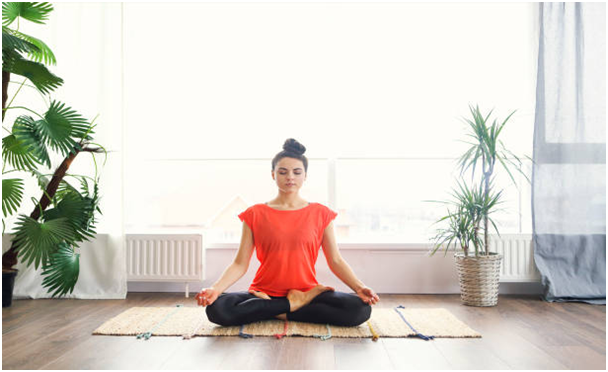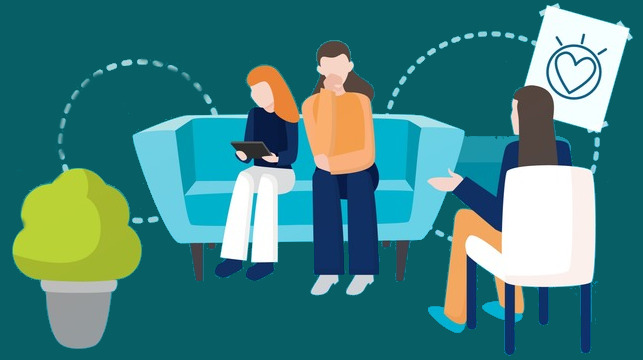Meditation benefits our mental health in infinite ways. Trauma, anxiety, depression, unhelpful psychological patterns are each soothed through awareness. Meditation is a practice of becoming more aware in your day-to-day life. It is a moment-to-moment practice. Meditation quiets the mind, calms the nervous system and cultivates compassion, presence and happiness. It is healing and transformative.
The main meditation techniques are:
Mindfulness of breathing meditation is a technique that helps you concentrate your mind, become aware of all your thoughts, and function more effectively.
Meditation on Friendliness can be divided into two main types: meditation on love for oneself and meditation on love for others. The first type is just like a chamber in which to store the two other types: peaceful and helpful feelings, so that they can be easily retrieved at a later time.
Insight Meditation is one of the most popular types of meditation used today. It is developing a greater cultural profile with increased recognition by the entertainment and business communities.
Meditation vs. Mindfulness: What’s the Difference?
There is a lot of talk about mindfulness and meditation and how different they are from one another. Mindfulness is more like a type of exercise that you do. Meditation is an exercise for your mind, where you work with it so that you have awareness and bounce back quickly from events in your life.
Both meditation and mindfulness are brain exercises. But, they differ in their approach. Mindfulness is a part of meditation, which is an exercise for the brain to make you more self-aware. It involves concentrating on a single activity, like breathing, and does not require any changes to your daily schedule or lifestyle.
Meditation is an exercise for the brain that helps you become more self-aware, control your emotions, and bounce back quickly from stressful events.
How To Get Started Meditating?
Meditation is proven to benefit both our physical and mental health, but it can be hard to start. From setting the right environment to finding a teacher to talk to, there are many elements to consider when starting meditation. Daily mindfulness can be a great way to incorporate meditation into your activities. Start with something simple, like brushing your teeth. Focus on the sensations you feel when brushing, like the taste and smell. Being fully present during these activities is a great way to focus your mind away from stressful thoughts and emotions.
Start meditating today by breaking the habit of thinking about how you’re going to start. Promises can be easily broken when we face a busy schedule and find little time for ourselves. Meditation requires you to put aside some of your personal time, but that’s what makes it so important to do. It’s therapeutic, especially during stressful times, and brings you the calmness and sense of peace that most people are looking for in their lives.
How to Meditate?
It seems a lot of people are talking about how to meditate lately, so we put together a simple guide for beginners:
1) Take a seat
Begin by taking a seat in a comfortable position. You want your posture to be open, with no strain or tension in your body.
2) Set a time limit
Start off with a few minutes of meditation each day. You don’t need anything special to begin.
3) Notice your body
Now, notice your body. Wherever you find yourself sitting, allow yourself to be in that position. Notice your back in contact with the chair or the ground, feel your legs resting on the floor and perhaps your feet tucked under you if you are sitting cross-legged. Feel how warm or cool the air is against your face, arms, hands and back. If there is a breeze, feel it move past you.
4) Feel your breath
Focus on the sensation of your breath as it goes in and comes out of your nostrils.
5) Notice when your mind has wandered
Our attention wanders, we become distracted by sounds, sensations, and thoughts, and then we notice and bring our attention back to the breath. This is the cycle of practice: noticing that we’ve drifted away, gently bringing our attention back to the breath, noticing again, bringing back again. The mind will wander more quickly in the beginning of your practice and may take longer to return with some regularity as you repeat this process.
6) Be kind to your wandering mind
If a wandering train of thought pulls you away from your point of focus, just come back. It’s that simple.
7) Close with kindness
Notice the sensations of being upright — particularly your back and hips. Slowly open your eyes.
What Are the Health Benefits of Meditation?
When people practice meditation, they are connecting their mind, body and spirit. This helps them to be aware of the present moment. The health benefits of meditation include pain management and stress reduction in children, as well as improved concentration. Those who practice it on a regular basis find that they become more focused and handle stressful events throughout the day with less instances of becoming overwhelmed.
It has been shown to help with ADHD, pain, sleep and behavior. Meditation also allows you to calm your mind and realize a greater state of focus.
From improving focus to overcoming illness, those who meditate regularly experience numerous health benefits. For instance, studies indicate a regular practice of meditation reduces cortisol (stress hormone) levels in the body, decreases blood pressure and helps to lower blood sugar levels for diabetics.








